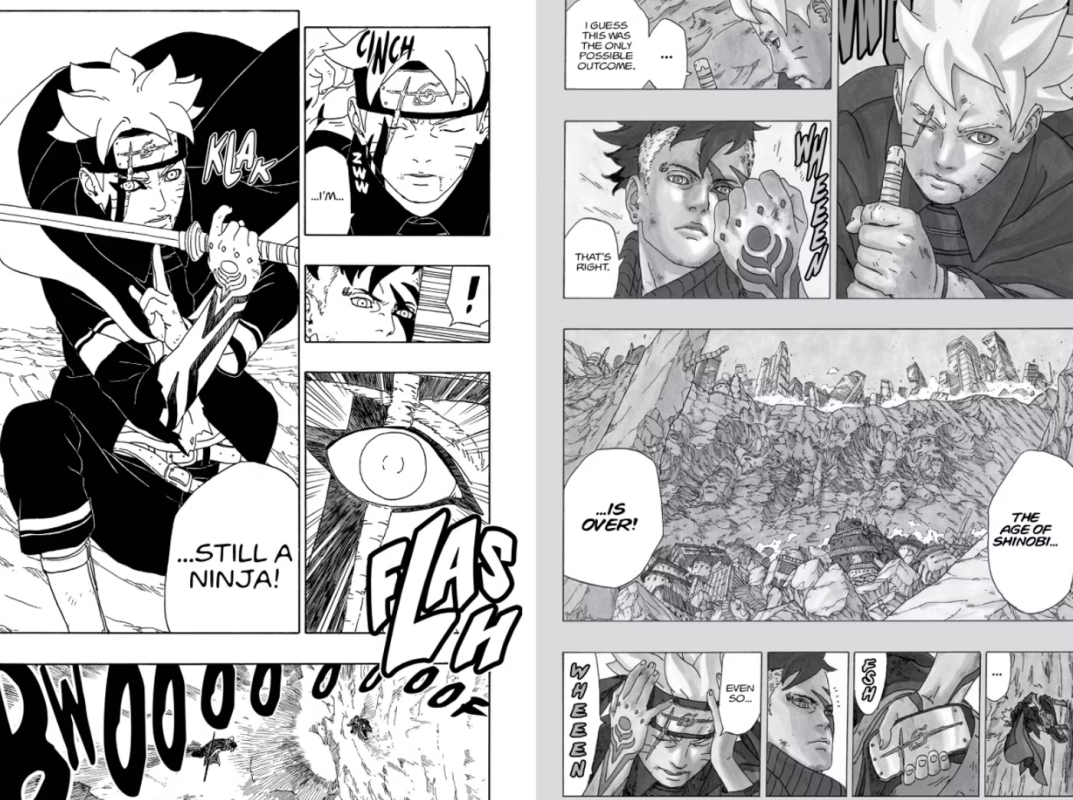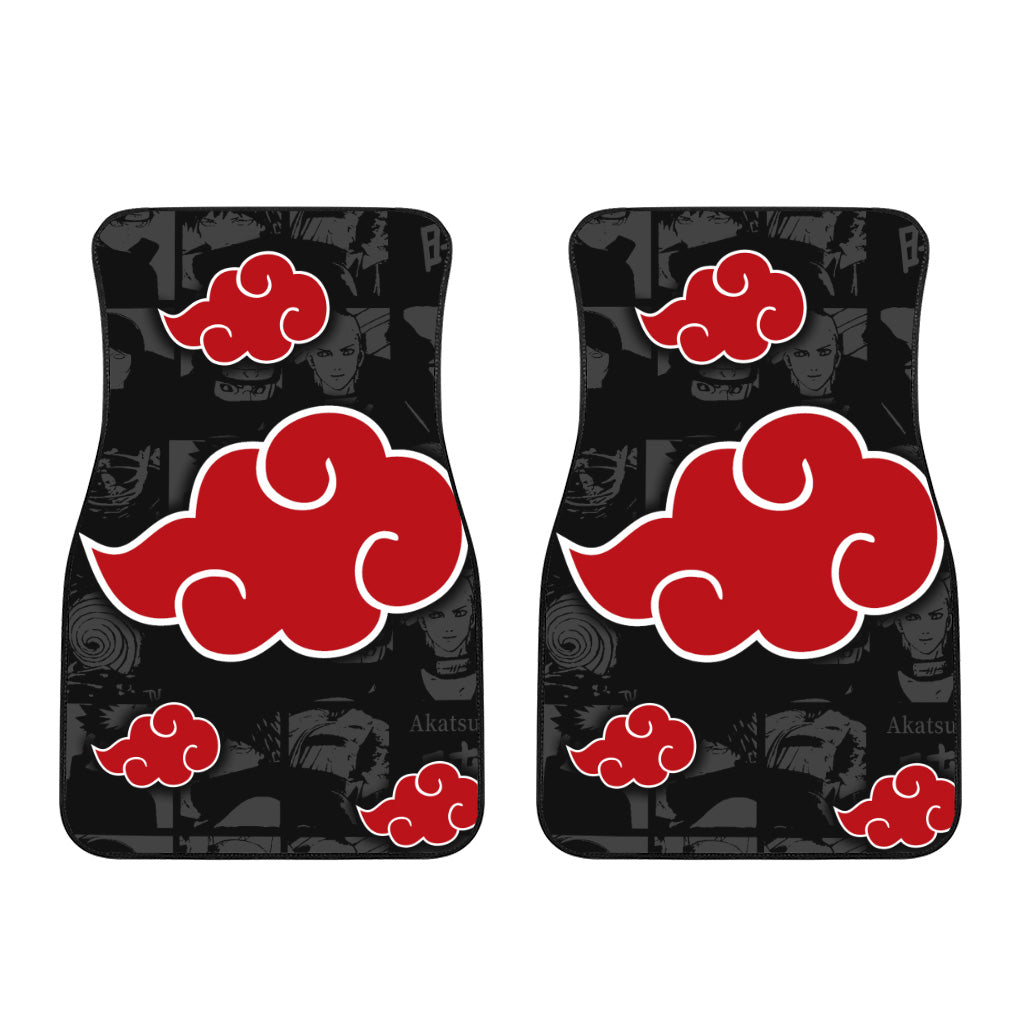Exploring the Purpose of Boruto’s Time Skip
The utilization of a time skip is a commonly employed technique in anime to breathe new life into a stagnant storyline. However, in the case of Boruto, the time skip serves a distinct and intriguing purpose. From the very first chapter of Boruto: Naruto Next Generations, hints of an impending time skip have been dropped, but its function differs from similar narrative devices found in other franchises. Rather than presenting a forward-looking, open-ended narrative, Boruto primarily unfolds as a retrospective tale, gradually leading up to the predetermined conclusion that fans have been aware of from the outset. While this narrative structure may initially appear unconventional, it further attests to the creative brilliance of series creator Masashi Kishimoto.
In the climactic final episode of Boruto’s first season, fans were treated to a reimagined rendition of the show’s opening scene, featuring an older Boruto and Kawaki engaged in a fierce confrontation atop Hokage Rock, overlooking a devastated Konoha village. This powerful reminder not only reignited fans’ anticipation for the forthcoming time skip but also hinted at the monumental impact it will have on the story. At this juncture in the anime, both Boruto and Kawaki are united as brothers, standing together to protect their community from the looming threats posed by Code, Eida, and the remnants of Kara. However, their mastery over their powers seems far from complete compared to their confident and formidable personas depicted in the Hokage Rock encounter.
The Time Skip Introduces Unpredictability into Boruto’s Storyline The inclusion of a time skip in Boruto is essential to reconnect the narrative with the prime timeline initially established in the manga and anime’s opening moments, only to be set aside until the closing episode of Part 1. While time skips are a familiar narrative trope in anime, Kishimoto’s approach in Boruto stands out by positioning it at the story’s inception. This creative decision grants the author unparalleled freedom in shaping the content, enabling him to explore traditional ninja story elements reminiscent of Naruto while also experimenting with unconventional plotlines involving Otsutsuki extraterrestrial beings and divine powers such as Omnipotence. Ultimately, the time skip will steer the story back to the prime timeline, culminating in the epic clash between Kawaki and Boruto, seemingly the last two survivors in the aftermath of Konoha Village’s devastation. Kishimoto has ventured down numerous narrative paths, some of which have led to the divergence of fans’ interests.

With the introduction of the time skip, Kishimoto possesses the opportunity to essentially reset the story, wiping away everything that transpired before. Fans are undoubtedly acquainted with the prevailing theory that Boruto’s narrative is merely a dream, possibly Naruto’s reverie while trapped within Madara’s Infinite Tsukuyomi. However, it is more plausible that Kishimoto will retain only those story elements relevant to the impending Kawaki-Boruto showdown, discarding the rest. Even if the events preceding the return to the prime timeline retain their status as part of the story’s “canon,” their role will primarily serve as background and context for the main narrative.
Fans should not be caught off guard by this narrative approach. Kishimoto employed a milder version of it in Naruto when, after building up the final stages of the series around the menace of Madara, he abruptly shifted focus to Kaguya Otsutsuki as the ultimate antagonist. Hopefully, the backlash from fans resulting from that abrupt twist will cause Kishimoto to exercise caution in implementing such a sudden development in the culmination of Boruto, utilizing the time skip instead to lay the foundation for the final conflict that lies ahead.
We bring out some of the most well-known Naruto collection, all of which are available at reasonable costs. Visit our link now if you are interested in the Naruto collection!


Mito, Tsunade, Orochimaru, Pain, Jiraiya, Danzo

